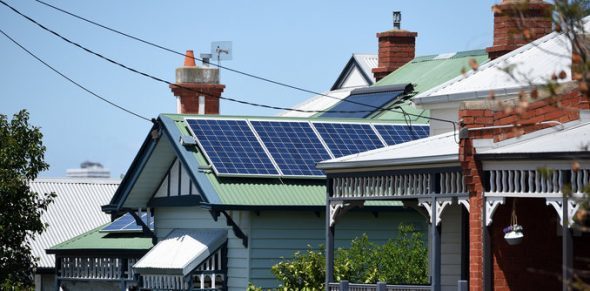Victoria’s Essential Services Commission says there is obviously network value in rooftop solar, but it says it is difficult to work out how much value, and it may not be able to do so without the development of a grid services market.
The ESC has been asked by the Victorian government to come up with a “fair value” of solar, and value the “benefits” of rooftop solar which had hitherto been missing from regulatory assessments of solar feed in tariffs.
So far it has addressed issues such as solar’s benefits for climate change, avoided transmission losses and environment (the ESC couldn’t identify or value any). This, combined with an increase in wholesale prices, has resulted in a doubling of the FiT.
 Now it has had another go at the so-called “network value”. It says these values do exist – solar PV and other “distributed generation” can and does create network value, it says.
Now it has had another go at the so-called “network value”. It says these values do exist – solar PV and other “distributed generation” can and does create network value, it says.
“The main source of that value is the way distributed generation can reduce network congestion, which may defer the need to upgrade the network and thereby save costs. Reducing network congestion can also reduce the amount of expected unserved energy.
But it says these are hard to value because they vary by location – for instance, if a lot of money has already been spent on upgrading a network, the value may be less. (That is highly contentious from the point of view of solar advocates, as it seems to justify network spending).
The ESC also says there is a time cycle, and the asset life cycle is also important.
It says this value may be more easily recognised when the “intermittent” output of solar PV is “firmed” through the additional of battery storage, and energy management technologies, and the introduction of new concepts such as virtual power plants.
Because it is reluctant to put a fixed value on this, it wants to regard the main benefit – reducing network congestion – as a form of ‘grid service’ and it is looking to create a market for such services. That though will be complicated and will take some time.
“Such a market could provide adequate opportunities for small-scale grid service providers, including distributed generators, to be remunerated for the grid services they are capable of providing,” it says.
It is proposing yet another review to look at how this market can be structured, including auctions and other means.
Shani Tager, senior campaigner with advocacy group Solar Citizens, says the decision is disappointing.
“It is an important report in its effort to recognise the true value of solar. Unfortunately, their recommendation of further investigations into a market mechanism will cause unnecessary delays in Victorian solar owners getting a fairer price for the power they produce,” she said in a statement.
“Solar Citizens believes that the simplest and most effective way to recognise the value from locally produced and used energy is through a feed in tariff (FiT) system where solar owners receive a fair price for the power they produce.”







